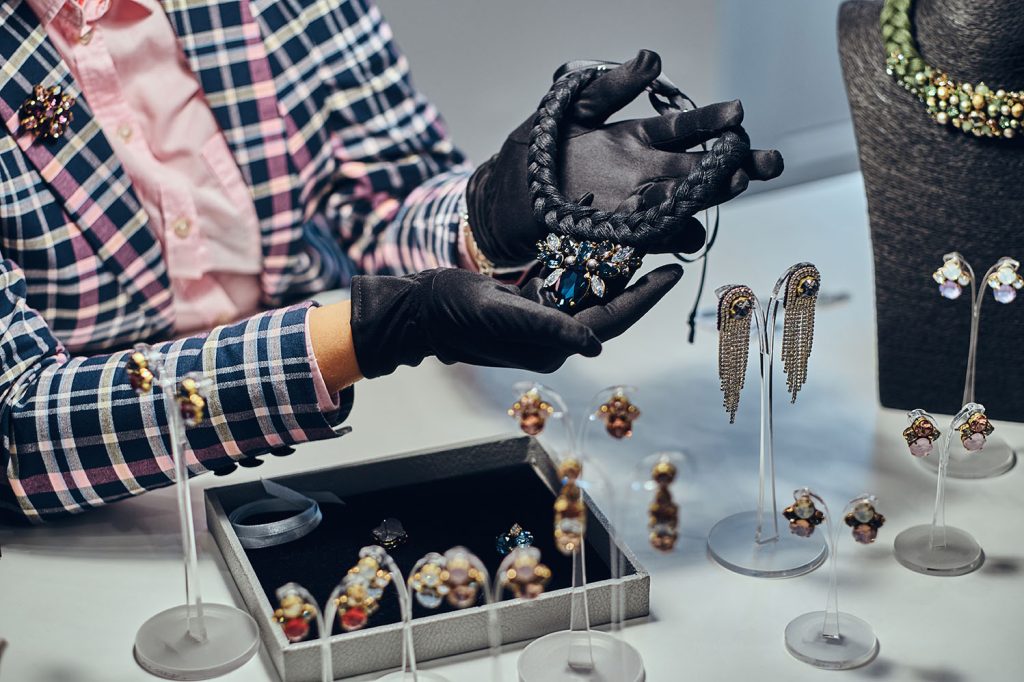Uncategorized
Caring for Your Treasures: Jewelry Maintenance Tips
Jewelry is not just an accessory; it’s an investment, a reflection of your style, and, often, a sentimental keepsake. Whether you have a dazzling diamond engagement ring, a vintage family heirloom, or a collection of statement pieces, proper jewelry maintenance is essential to ensure they continue to shine brilliantly. In this comprehensive guide, we’ll explore essential jewelry maintenance tips that will help you keep your treasures looking as stunning as the day you acquired them. From cleaning and storage to professional care, we’ve got you covered.
One of the most critical aspects of jewelry maintenance is regular cleaning. Over time, jewelry can accumulate dirt, oils, and even tiny scratches that dull its luster. Here’s how to clean your jewelry effectively:
- Gentle Cleaning Solutions: A mild dish soap and warm water solution work wonders for most jewelry pieces. Soak your jewelry pieces for a few minutes and gently scrub away dirt with a soft brush or toothbrush. Rinse the piece with clean water and pat dry with a, lint-free cloth.
- Ultrasonic Cleaners: Some jewelry, like diamonds, can benefit from ultrasonic cleaning machines. These devices use high-frequency sound waves to dislodge dirt and grime from your jewelry. However, use caution and consult a professional if you’re unsure whether your jewelry is suitable for ultrasonic cleaning.
- Professional Cleaning: Consider having your jewelry professionally cleaned by a jeweler at least once a year. They have specialized equipment and expertise to clean and inspect your jewelry thoroughly.
Storing Your Jewelry
Storing your jewelry properly is essential to prevent damage, tangling, and loss of valuable pieces. Whether you have a small collection or a vast assortment of jewelry, organizing and storing them correctly will help keep them pristine. In this detailed post, I’ll guide you through various methods and tips for storing your jewelry effectively.
Sort and Declutter
Before you start organizing your jewelry, take the time to go through your collection. Weed-out pieces you no longer wear or need. Donate, sell, or recycle items that are broken or no longer serve you. Reducing your collection will make it easier to organize and maintain.
Gather Supplies
Before you begin storing your jewelry, gather the necessary supplies:
- Jewelry boxes or organizers
- Velvet or felt-lined trays
- Small plastic bags or pouches
- Jewelry hooks or racks
- Jewelry armoire or chest
- Acid-free tissue paper
- Silica gel packets (to absorb moisture)
Consider Your Jewelry Type
Different types of jewelry require different storage solutions:
- Necklaces and Chains: Hang them on hooks or pegs to prevent tangling. You can store them in a drawer with individual pouches or use a necklace organizer.
- Earrings: Use a jewelry box or tray with earring slots or a specialized earring organizer. Clear plastic organizers are great for small studs, while larger earrings can be hung on hooks.
- Rings: A ring holder or padded ring tray is ideal for keeping rings organized. Stackable ring trays work well for larger collections.
- Bracelets and Watches: Use a bracelet bar, watch box, or padded tray. For bangles or cuffs, consider a cylindrical holder.
- Brooches and Pins: A cushioned tray or a jewelry box with compartments is suitable for brooches and pins.
Consider Anti-Tarnish Measures
For silver jewelry, consider adding anti-tarnish strips or pouches to your storage containers to slow tarnishing. These products absorb moisture and prevent oxidation.
Store In A Cool, Dry Place
Ensure your jewelry storage area is away from direct sunlight and high temperatures, as these can damage your jewelry and cause it to fade or become brittle.
Professional Jewelry Care
 While regular cleaning and storage go a long way, there are times when professional care is necessary:
While regular cleaning and storage go a long way, there are times when professional care is necessary:
- Jewelry Inspection: Have your jewelry regularly inspected by a professional jeweler, especially for pieces with delicate settings or valuable gemstones. They can identify issues like loose stones or worn prongs.
- Repairs and Restoration: If your jewelry requires repairs or restoration, entrust this to a skilled jeweler. Attempting DIY fixes can lead to further damage.
- Repolishing and Refinishing: Over time, jewelry may lose its shine. Professional jewelers can repolish and refinish your pieces to restore their original luster.
Your jewelry is more than just adornment; it’s a part of your identity and often carries sentimental value. Following these jewelry maintenance tips ensures your treasures continue to sparkle and endure for generations. Regular cleaning, proper storage, and professional care are the keys to preserving the beauty and significance of your jewelry. So, invest time and care in maintaining your jewelry, and they will reward you with a lifetime of elegance and memories.
Incorporating these jewelry maintenance tips into your routine allows you to enjoy your cherished pieces and protect your investment for years.
Get Your Jewelry from Isadora Jewelry
Isadora Jewelry is a reputable jewelry house with experienced gemologists and designers. We are also certified and will help you choose the perfect engagement ring that will fit your budget and preferences.
References and Resources
- https://www.lovetoknow.com/life/style/how-take-great-care-your-jewelry
- https://www.bhg.com/decorating/storage/organization-basics/how-to-organize-jewelry



